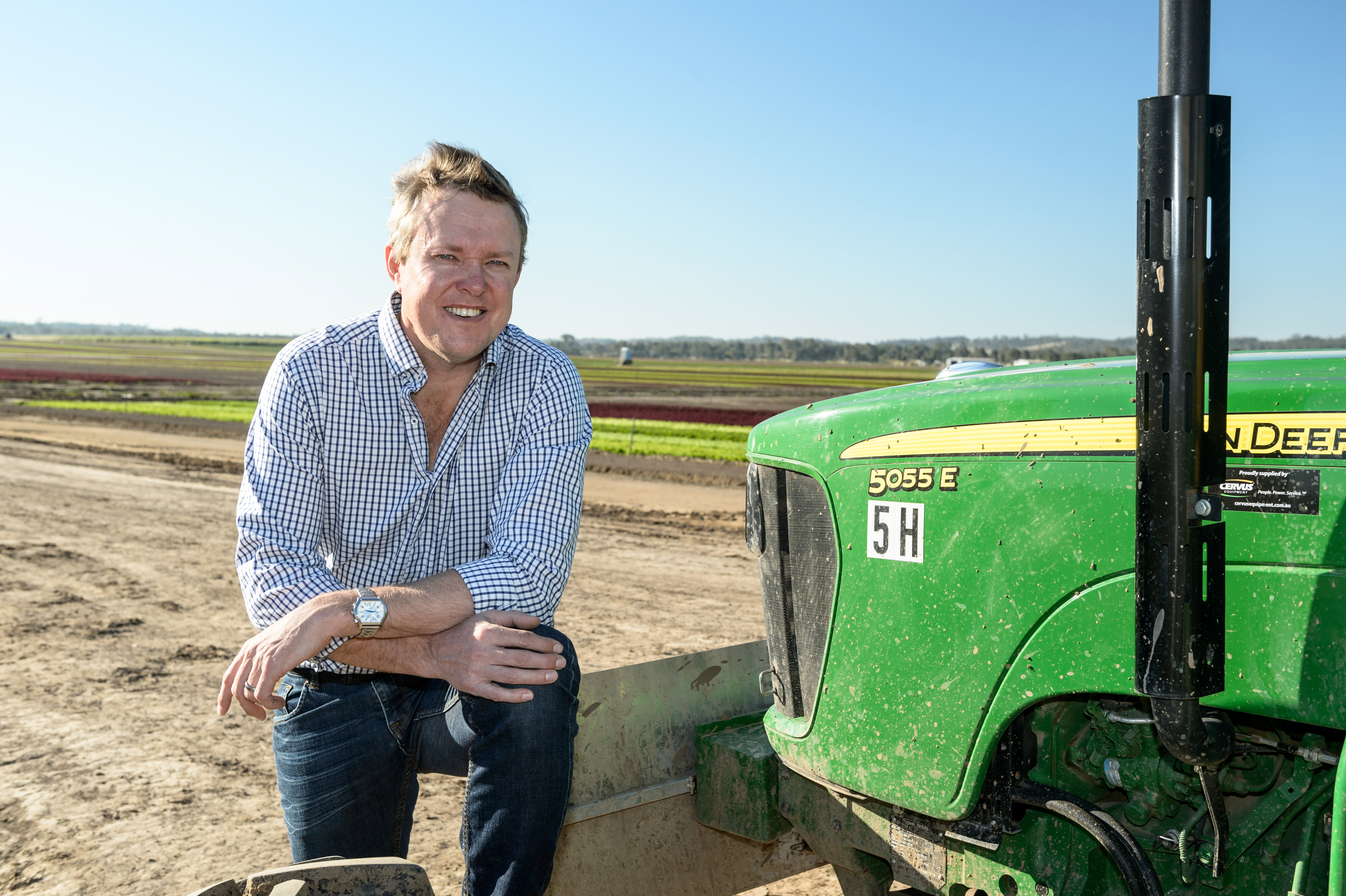Identify process improvements for preserving peak freshness of broccoli
16 August 2017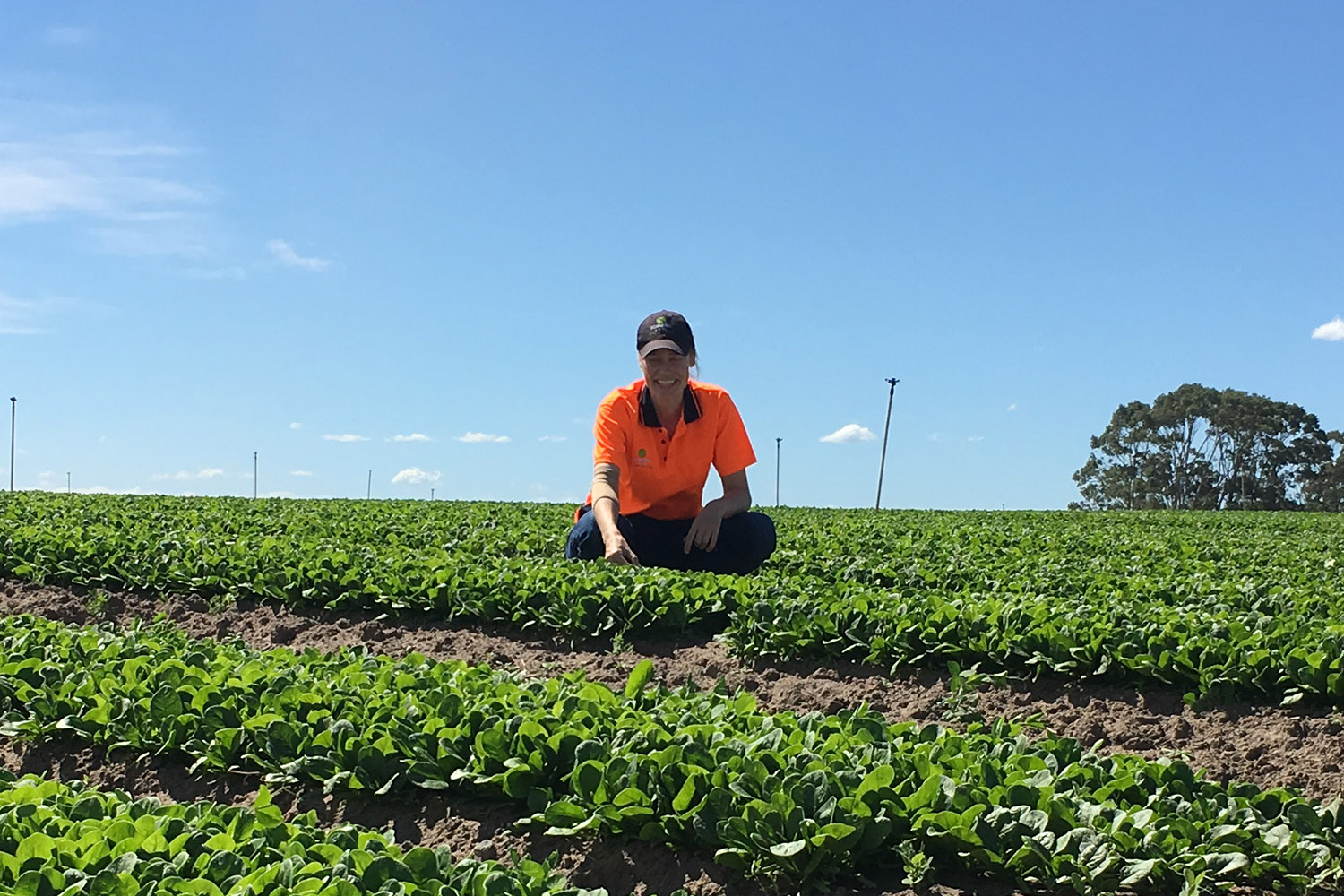
Marie-Astrid Ottenhof: Advancing the food safety cause
15 September 2017A fourth generation farmer, Hugh Reardon entered the vegetable industry 12 years ago as one half of Dicky Bill Farming (formerly Australian Fresh Salads). Since then, Hugh has overseen the reinvention of the growing operation, which has undergone a relocation from south-east Queensland to central Queensland and Victoria. AUSVEG spoke to the Maffra-based grower about his horticultural journey so far.
Fast facts
Name: Hugh Reardon
Location: Maffra, VIC
Works: Dicky Bill
Grows: Spinach, wild rocket, mesclun, mixed salads, coloured lettuce (red and green) and cos lettuce.
Hugh Reardon is passionate about farming and the technology that comes with it. As a child, he and his brother would read machinery catalogues and reel off the prices of tractors; now as a fourth generation farmer, his interest in agtech continues to thrive. Suffice to say, working on the land is in his blood.
After growing up on grain and cattle plains in north-western New South Wales, Hugh worked in the cotton industry for a few years before joining Ryan McLeod as a Director of Dicky Bill Farming (formerly Australian Fresh Salads) in 2005.
Hugh and Ryan have overseen the relocation of the business to two operating sites. Dicky Bill Farming previously had nine farms based in south-east Queensland; however after the floods of 2010-11, they moved north to Wide Bay (near Bundaberg) and south to Maffra in Victoria. The original nine farms have since ceased operation.
With Ryan and his wife Tahirih running the Dicky Bill Australia marketing operation out of Brisbane, Hugh oversees the day-to-day business at the Maffra farming site.
Dicky Bill Farming’s core business is fresh cut salads – spinach, wild rocket, mesclun, mixed salads, coloured lettuce (red and green) and cos. It also grows sweetcorn and herbs (coriander and parsley) seasonally, and other crops when there is a window of opportunity for prime growth.
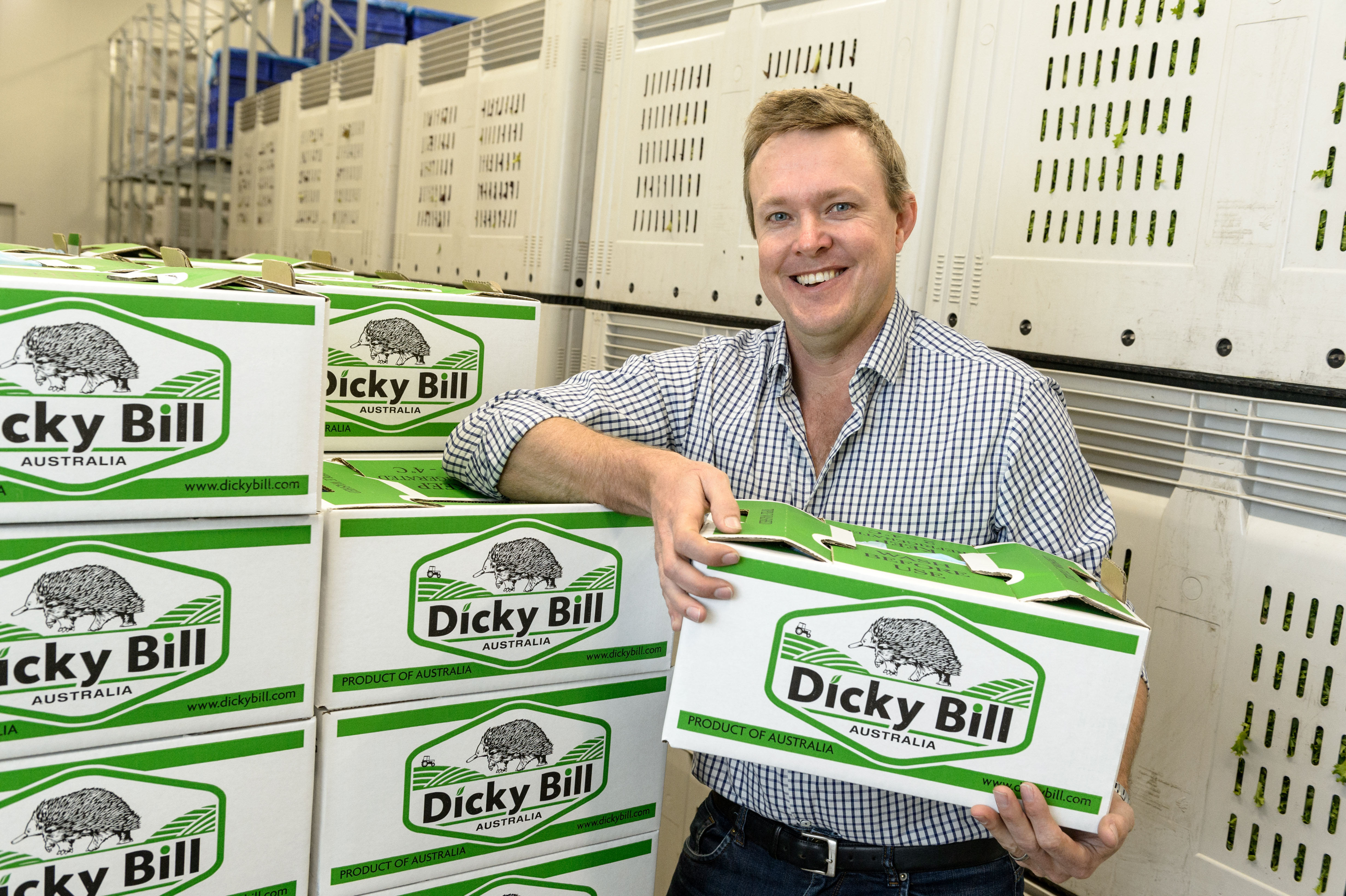
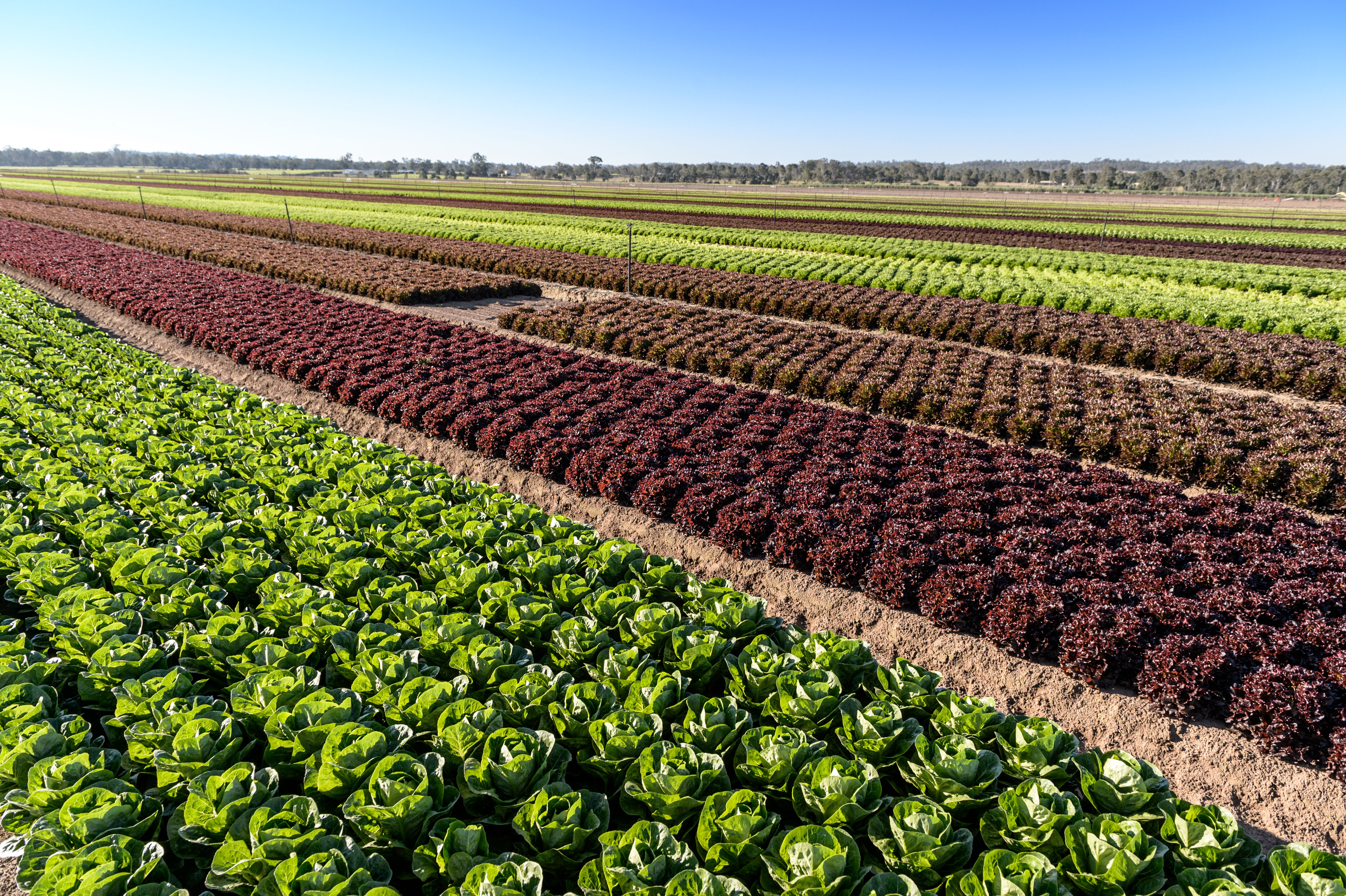
Focus on technology
In addition to his role at Dicky Bill, Hugh combined his passion for farming and technology by co-founding a start-up business, which has now reached the commercialisation stage.
Hugh spoke about Apunga, a horticultural farm management application, at Hort Connections 2017 as part of the project 2017 Global Innovations in Horticulture Seminar, a strategic levy investment under the Hort Innovation Vegetable Fund.
Apunga is a joint venture between Dicky Bill Farming and Tehnika, a control systems company.
“A goal for myself and Ryan was always to scale and grow the business and it’s very, very difficult on a paper-based system. There are around 20 varieties of salad crops that we grow and there is a lot of complexity within our category. Trying to manage that on a paper-based system was inhibiting the growth,” he said.
The vision was to automate, document and record these systems so that Hugh and Ryan could manage them with ease. This would enable the pair to have product when other growers didn’t, recognise how much product they were producing and limit waste, and assist in identifying the specific location of diseases such as mildew.
“Having that information means that something which would normally take hours to diagnose, or put you into a bit of a tailspin, we could find the cause and effect at our fingertips. That’s key to any business – just having the information. Information is power,” Hugh says.
"As vegetable growers, we’re all subject to supply and demand and that affects our profitability because of reduced prices. We need to reduce the supply of our product on the domestic market, whether that is as an industry or individual business."
Embracing innovation
Besides Apunga, the next step for Hugh and his business focus is continued innovation, which he believes can be achieved through better collaboration.
“As vegetable growers, we’re all subject to supply and demand and that affects our profitability because of reduced prices. We need to reduce the supply of our product on the domestic market, whether that is as an industry or individual business,” Hugh says.
“Part of that is through export, which is why Ryan and Tahirih moved to Brisbane to focus on marketing. If you’ve got excess supply due to seasonality or other growers having oversupply, we need to find an outlet for that product, which creates value.”
“I think the biggest challenge in vegetables is the lack of collaboration. We need to shift the focus from feeding Australia to feeding Asia and being more collaborative – if we can get that mindset, then I think that the world’s our oyster.”
Hugh says that is part of where the innovation comes from – developing new products that meet consumer requirements.
“With new products, people don’t even know that they want it, but they need it to be convenient and healthy,” he says.
“I’ve spent a lot of time looking at other fresh produce and I just think we’re looking at the wrong areas – I think the innovation for us is in convenience and health, not necessarily fresh produce because that’s already pretty saturated.”
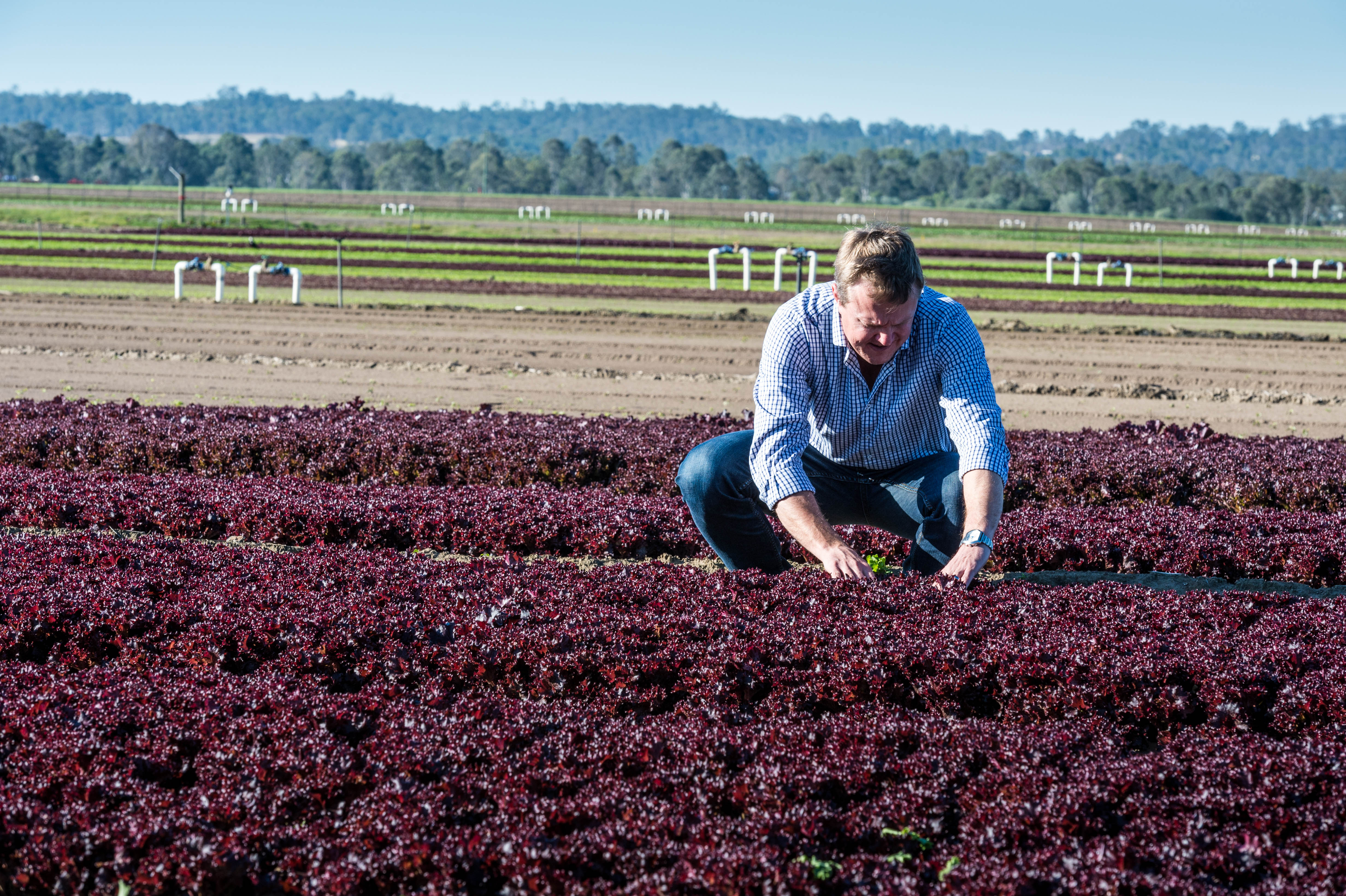
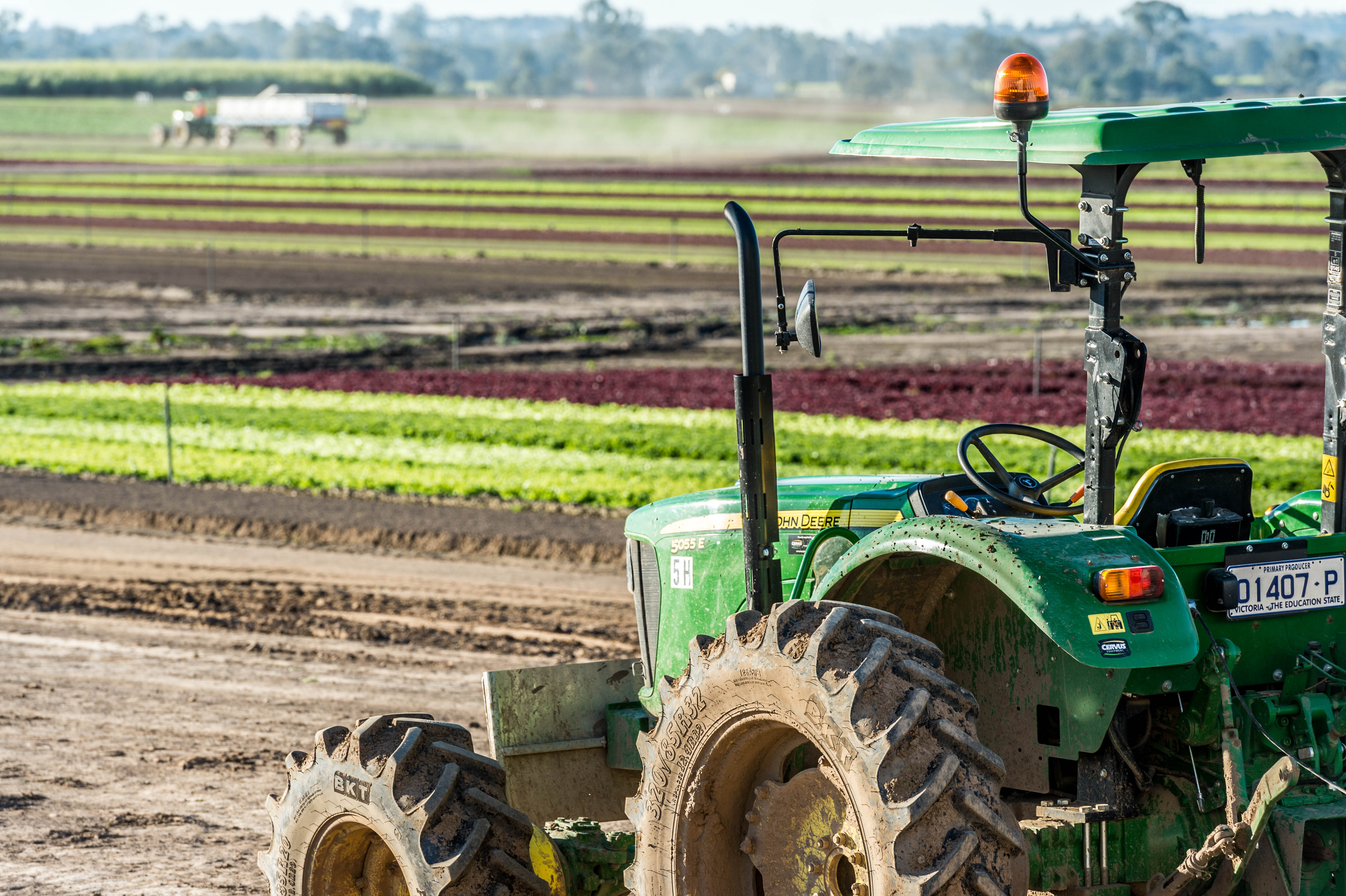
Grower challenges
Hugh has faced plenty of challenges over the past 12 years in the vegetable industry. One of these has been labour, which has stemmed from relocating the growing sites and having to recruit new teams to lead the company.
“Like any intensive growing operation even if it is heavily mechanised, labour is the biggest cost and we’re no different. The compliance around that, and recruiting and finding the right people, is an ongoing journey,” Hugh says.
“It’s probably a bit more specific to our business more than anybody else because we’ve moved and re-invented our business. We’ve had to acquire a whole new team at both sites, which is ongoing.
“Compliance is also massive right across the industry. We’re growing food for people so we need to grow it safely, and that’s just what happens. That’s another reason for Apunga: Managing the compliance, and improving food safety.”
Empowering staff
Hugh aims to empower his staff by engaging with the vegetable industry as much as possible. Key Dicky Bill staff have participated in the strategic levy investment project Growing Leaders, part of the Hort Innovation Vegetable Fund, while Hugh is currently studying the first of the project Masterclass in Horticultural Business (LP15001), a strategic partnership initiative under the Hort Frontiers Leadership Fund.
“We’ve spent a lot of time defining our organisational structure, our vision for the business and trying to engage all of our key stakeholders and our staff in our objectives,” Hugh says.
“They all know who they report to, how they add value to the business, what the business is about, and I think that’s probably missing from a lot of horticultural businesses. I don’t think we’re better than anybody else; it’s just that we’ve had the challenge to actually build a team quickly so it’s been a higher focus and a bigger priority for myself.”
Achieving goals
A self-described “fourth generation farmer running on first generation capital”, Hugh is proud of what he and Ryan have been able to achieve to date.
“Ryan and I had a succession plan with his mother and we’ve paid our way with everything that we have been able to achieve,” he says.
“We’ve come through some massive challenges and have reinvented ourselves a few times – we’re still reinventing ourselves.
“We’ve moved our farming operations to completely different areas and Ryan left the farm to go marketing. Now we’ve gone from a normal salad-growing operation towards a vertically integrated business. The next step is actually going away from a fresh produce business to a convenience or a health food business.
“We’re just starting that journey.”
This grower profile first appeared in the leading magazine for the Australian vegetable industry, Vegetables Australia. If you’d like to subscribe to receive a new edition of Vegetables Australia in your mailbox every two months, use our online subscription form!
Photography credit: asbCreative

